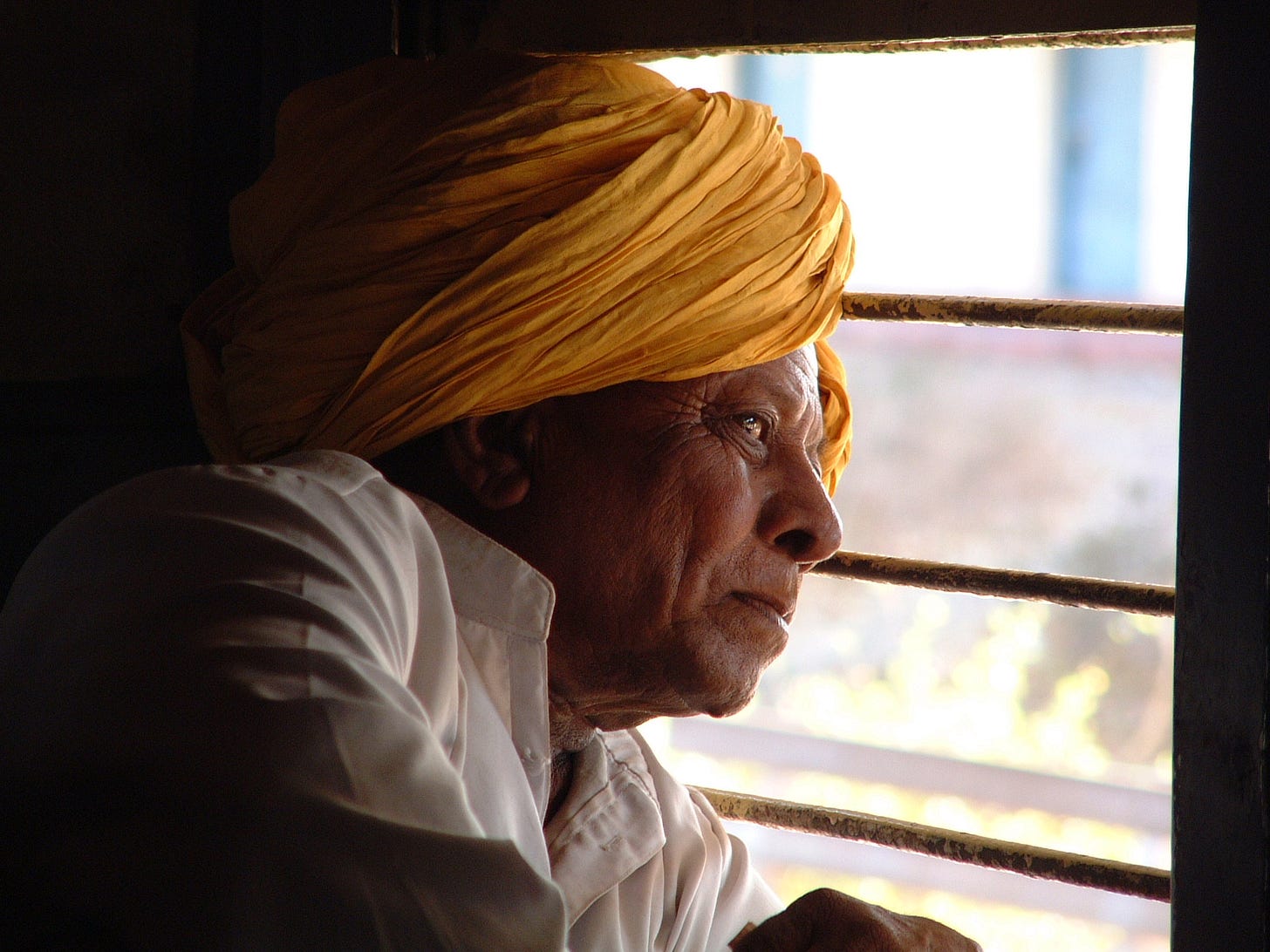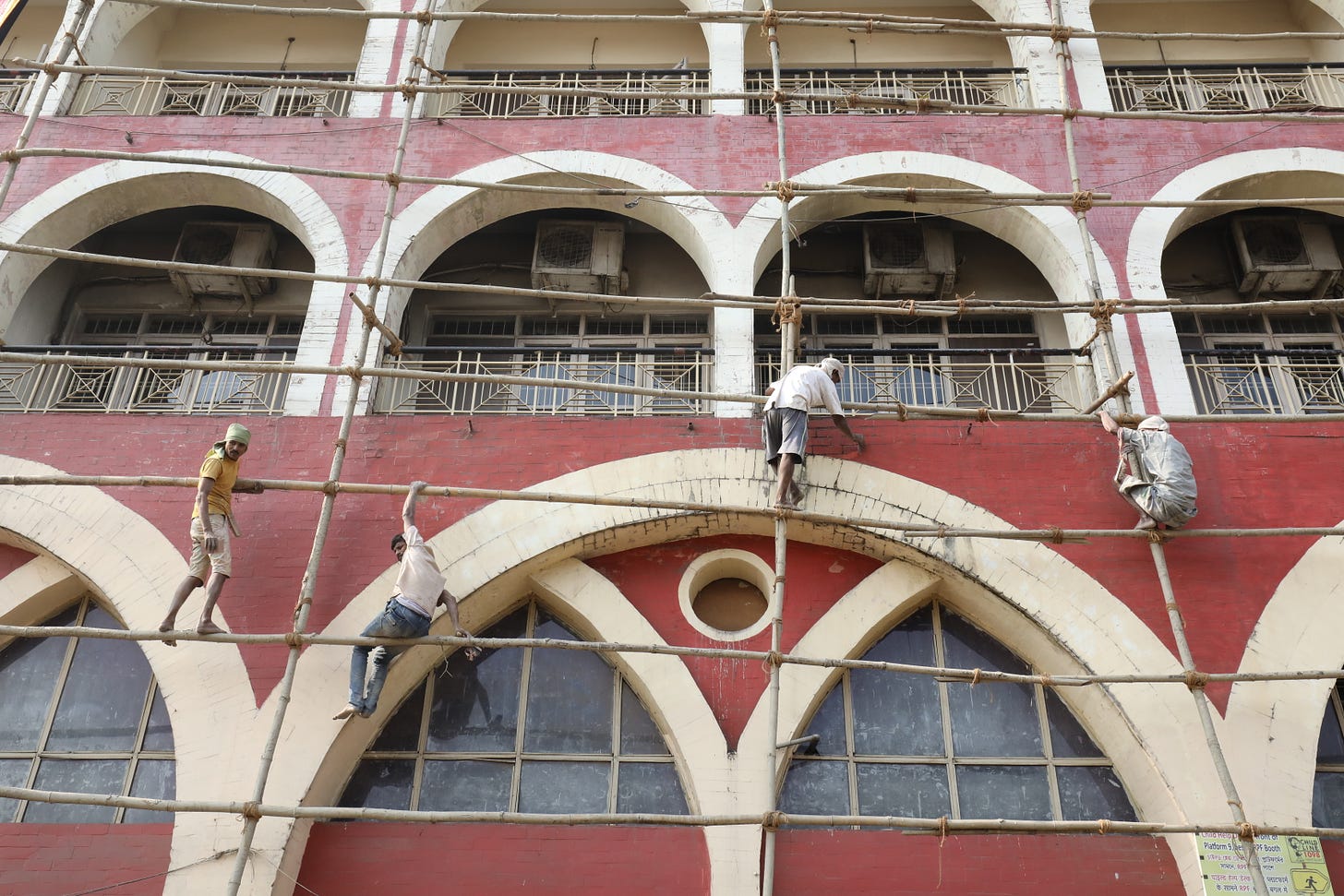There’s a lot of talk of reducing carbon emissions and, for the traveller, rail journeys have to be one way of doing so. And you have such interesting conversations. In 2001 I was meeting a lot of people as I crisscrossed India on what must be the world’s greatest rail network.
(By the way, before you get stuck into this, I’m thinking of doing a live session on Zoom where we could all meet. I’d love to put some faces to names. We could discuss previous posts, or any other subject, like where the great railway journeys are to be found. Feel free to make suggestions on themes, times etc.)
The following are verbatim from my diary with only a little bit of editing.
Howrah Mail to Itarsi 16th March 2001
The restaurant car is divided into veg and non-veg sections with the tables neat with water jugs, a saucer on top to keep out the dust, and display cabinets filled only with bottles of tomato ketchup.
I eavesdrop on two men, one of whom has just returned from three weeks of “inspection duty” in Chicago.
“Did you like the United States?” asks his friend. The answer is a head wobble. “What was good?”
The man thinks a bit. “Towers,” he says, “Very good towers.”
“And what was bad?”
He doesn’t need time to think. “Radio-controlled toys.”
Kusinagar Express from Itarsi to Gorakhpur
A group of Harijans enter the carriage begging. With them are two children who sing beautifully. One of them deliberately steps on my foot and when I glance down I see she has six toes.
Two ladies eat the food they brought from home. One complains that she did not take a bath before travelling, “Because the maid did not come.”
We cross the Narmada River and below, between the girders, I can see boys swimming and old naked men laying out on the sand banks. This is now the area known as the Bundelkhund, the heart of India, and for centuries associated with dacoits and bandits. The villages we pass are walled.
The ladies, who have been silent, rouse themselves. “God is nothing,” says one. After some time the other adds. “God is a banana.”
A Gurkha soldier sits beside me. He is going home to Nepal after six months and seems to be dreading it. He complains about the journey: all the changes of train, then the long bus rides and finally the twelve-hour hike up into the Himalayas. He shows great interest in me.
“Does you wife cultivate?”
He is shocked by my negative reply. “WHAT?! Not even padi?”
His own wife manages the family farm and grows sufficient rice for everyone. He asks more questions. “How often are you taking sex?”
My jaw drops and I prevaricate. “A normal frequency.”
The two old ladies are listening carefully.
The soldier is unabashed. “You mean three times daily?”
I can feel the tension in the carriage. The old ladies are staring out the window, suddenly engrossed in the sight of a line of trees and a man on a bicycle.
Local train: Jhansi to Jalaun
I talk to a doctor who once worked in Huddersfield but came home after family pressure. “England is like a beautiful swimming pool at a smart club,” he says. “But India is a wild sea where no one knows the depth.”
Mahanagari Express to Varanasi
I chat to a retired professor who tells me a story from his family past. “It was perhaps a century ago. My uncle was invited as a young man to escort a bride-to-be across India along with a armed guard. One night they had to camp by a lake and the guard went to wash. My uncle was intrigued to see the man’s sword so while he was away, he drew it out and inspected it. When the guard came back, he knew. ‘How dare you!’ he shouted. ‘When that sword is drawn, it must drink human blood.’ Then he took the sword and with a quick movement, cut off my uncle’s little finger.”
Mahanagari Express from Varanasi back to Mumbai
At night I lie awake while the train is stopped at some wayside halt and hear the sound of a woman’s glass bangles clicking as she walks up the platfrom. The train hoots and we slowly start moving again.







Wonderful stories.
And an online interactive sounds fun.
“God is a Banana” — I guess it wasn’t uttered in English and it was said “Kela” (Banana) instead in Hindi. In that case, Kela might have just meant -nothing, cipher, insignificant, insufficient etc. I hope you had figured it out by now, since your Children of Kali trip.